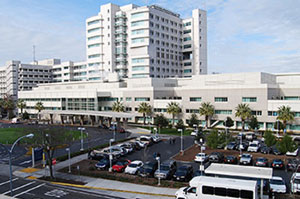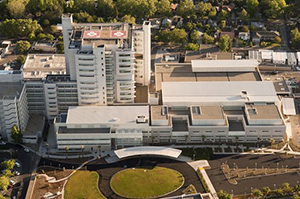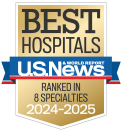What to expect: Pavilion Surgery Center information
Thank you for choosing to have surgery at UC Davis Medical Center. We've included the following content to help you become more familiar and comfortable with what to expect on the day of your surgery.
If you have any additional questions along the way please feel confident to "speak up" and ask a member of your health-care team.
(Note: The information on this page is specific to our Pavilion Surgery Center. If your procedure is scheduled at another surgery center at UC Davis Health instead, please visit our surgery centers page » to find links to more information on what to expect at those centers).
- Approximately 1-2 weeks before your procedure date at UC Davis Medical Center, you will be contacted by a registered nurse or anesthesia resident in the Surgical Admissions Center to discuss your medical history, current medications, and any previous experiences that you have had with anesthesia.
- You will receive a phone call from our Surgical Admissions Center nurses two business days before your surgery to review your pre-surgery instructions such as arrival time, when to stop taking food/drink, and other details specific to your surgery.
- Please note that you must arrange a ride home with a responsible adult after your surgery and to care for you at home for the first 24 hours following surgery.
- You will need to bring these items with you on surgery day:
- A valid form of identification: U.S. driver’s license, a DMV identification card, U.S. passport, or U.S. military identification card.
- Your health insurance card.
- A list of the medications you are taking.
- If you use any medical devices such as a CPAP machine, please bring them with you on day of surgery.
- Please do not wear jewelry, makeup, perfume, lotions, deodorants, colognes or aftershave to your procedure.
- Please wear loose fitting comfortable clothing.
- For a list of other personal items to bring or to leave at home, please review the list in the Personal Needs section of the medical center’s About Your Stay pages.
- A valid form of identification: U.S. driver’s license, a DMV identification card, U.S. passport, or U.S. military identification card.
- Please note that visiting in the pavilion pre-op and post-op areas is limited to adults. Children under 14 years of age are not allowed.
- Please note that there is no mobile phone service in the pre-operative and post-operative/recovery room areas. You may use your phone’s Wi-Fi service.
If you have any questions or concerns about your surgery, please contact your surgeon.
If you will be staying overnight as an inpatient, please see the medical center’s About Your Stay pages for additional information.
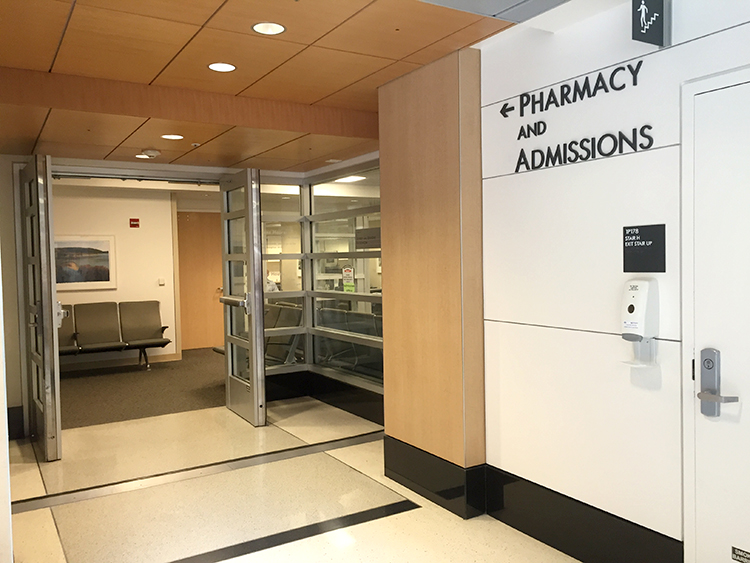
When you arrive at the medical center please go to admissions, located on the first floor of the hospital's pavilion wing, where you will show your identification and insurance card.
- You will fill out paperwork upon arrival.
- You will pay your co-pay at this time.
Once you've checked in at admissions you will proceed to the surgery reception area located in the surgery waiting room, on the third floor of the hospital's pavilion wing area.
- Staff will obtain your visitor contact information; provide you with information regarding parking as well as pre-op and post-op visitation.
- In addition, information for local lodging, parking, restaurants, and hospital resources such as chaplain services can be provided.
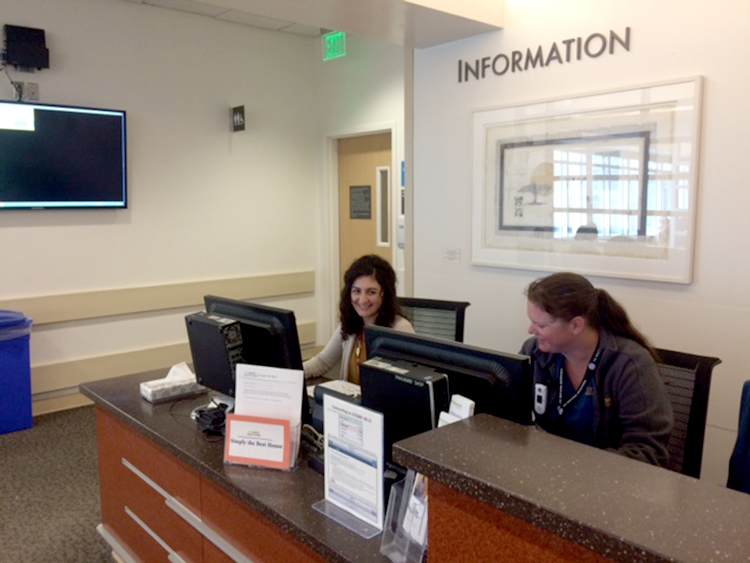 Surgery waiting area staff are available to answer questions for you and your loved ones
Surgery waiting area staff are available to answer questions for you and your loved ones
- The surgery waiting room is the location your family members or loved ones may wait for you while you are undergoing surgery. Waiting room staff will be available for any questions your family or loved ones may have during your surgery.
- Surgery waiting room staff will provide information for reading the electronic patient status board. The board will allow your family member or loved one to track your progress through pre-op, surgery, and recovery.
- When it is time to start preparing you for surgery, a registered nurse or another staff member will find you in the waiting room and escort you to a pre-op room.
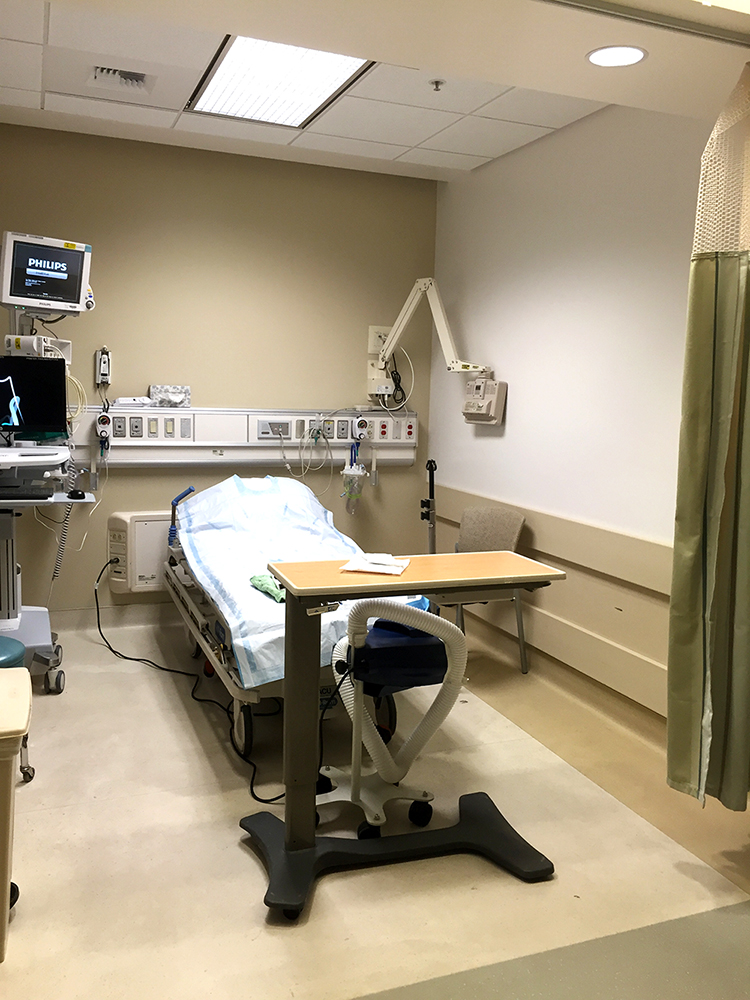
In pre-op you will meet a number of specialists who will help prepare you in different ways:
- The pre-op nurse will check your vital signs (blood pressure, temperature, respiration rate, pulse, etc.) complete a physical assessment, start your IV, and make the needed notations on the chart. This is the time you will review your home medications with the nurse. The pre-op nurse will also provide education regarding what to expect after surgery in the recovery area.
- The anesthesiologist will meet you and discuss the anesthesia process with you, including what anesthesia will do, how it will be administered, and how long you may be affected by it after the surgical procedure. The anesthesiologist will accompany you into the operating room and an anesthesiologist will be with you for the duration of your surgical procedure.
- The operating room nurse(s) will introduce themselves and confirm surgical procedure.
- The surgeon(s) will check in with you and answer any questions you have about the surgery.
- Once the pre-op nurse’s process is complete, up to two visitors may sit with you in the pre-op room until it is time for you to go to the operating room. Please keep in mind visitors must be age 14 or older and all visitors must be escorted in and out of the pre-op and post–op/recovery areas.
- We encourage all visitors to use alcohol foam hand cleaner or wash hands before visiting patients.
- We ask that your family or loved ones take your belongings for you while you are in surgery.
- Two of your family members or loved ones who are attending to support you can remain with you in pre-op until you go to the operating room. At that time they will be escorted to the waiting room.
- Your family members or loved ones are welcome to stay in the waiting room while you are in surgery. They may want to bring a book, music (headphones only) or a movie (headphones only) to pass the time. We ask that they remain available by phone while you are in surgery. If they are leaving the surgery waiting area, we ask that they check in with the staff member as they leave and when they return.
- The waiting room staff will be updated by the operating room nurse throughout the surgery.
- If your family members or loved ones need food or coffee, we recommend they do so right after you have gone into the operating room. By doing this, they can make sure they are available when the surgeon comes out to discuss how your operation went.
- Children may not be left unattended in the waiting room.
- For general information about visiting patients, please see the medical center’s Visitor Information pages.
- For information about cafeteria hours, parking, the gift shop and other related topics, please visit the General Information and Conveniences section of the medical center’s About Your Stay pages.
- After the surgery, you will be taken to the post-op/recovery room. Here, you will be assessed by nurses and physicians to ensure that you are comfortable and that your recovery is continuing as it should.
- If you are going home on the day of surgery, you will remain in the post-op/recovery room until you have recovered from the anesthesia and discharged to go home.
- If you are being admitted to the hospital after surgery, you will remain in the post-op/recovery room until you have recovered from the anesthesia. You will be transferred to your hospital room when it becomes available.
- Once a patient arrives in the recovery room, it usually takes at least one hour before they are ready for visitors. Your loved ones will know when you arrive in the recovery room by looking at the electronic status board in the waiting room.
- To promote healing and recovery, only two visitors for 10 minutes per hour are allowed to visit during the recovery phase. For safety, all visitors must be escorted in and out of the recovery area.
- We encourage all visitors to use alcohol foam hand cleaner or wash hands before visiting patients.
- Please note, to provide for all patients’ privacy and safety, there may be times when we limit visitation in the post-op/recovery areas.
- No flowers or latex balloons may be brought into the recovery room.
- If you know you will be staying overnight as an inpatient, you should bring appropriate overnight supplies. Please see the Personal Needs section of the medical center's About Your Stay pages for instructions and guidance about what to bring and what to leave at home.
- Before being discharged from the recovery area, you will be examined by an anesthesiologist.
- You and your loved ones will be provided with all the information you need for a continued, safe recuperation at home, such as discharge instructions and contact phone numbers for both daytime and overnight use.
- You must have a ride home and someone to stay with you for the first 24 hours after surgery.

